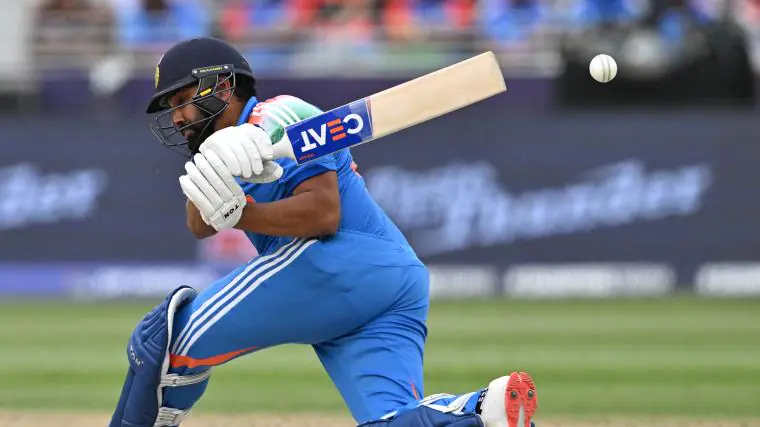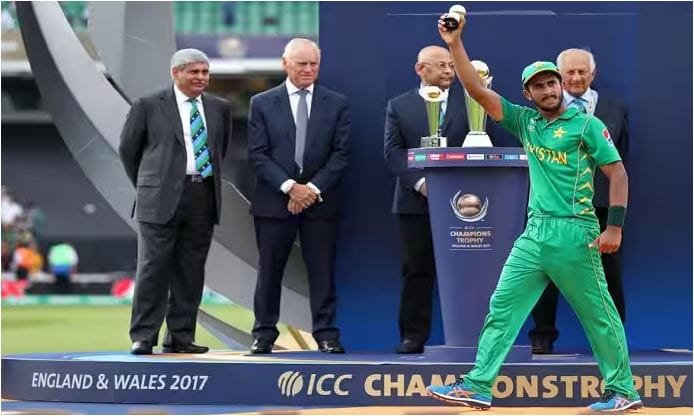
Pakistan’s tennis star, Aisam ul Haq Qureshi, has expressed unwavering support for the Pakistan Cricket Board (PCB) in its stance on hosting the Champions Trophy. Speaking at the Pakistan Tennis Federation (PTF) Complex, he emphasized the International Cricket Council’s (ICC) responsibility to ensure India’s participation.
Key Takeaways
- PCB must remain steadfast in hosting rights for the Champions Trophy.
- The ICC must ensure participation of all member nations, including India.
- Sports diplomacy is essential to bridge gaps between nations.
Aisam Calls for Pakistan’s Rightful Hosting
He highlighted that India’s refusal to play in Pakistan has long been a pattern. Aisam pointed out instances where politics overshadowed sports. He urged the PCB to remain firm, as Pakistan has the right to host the prestigious tournament.
Aisam called on the Indian government to prioritize sportsmanship over politics. He reiterated the importance of building bridges through sports, allowing fans to witness competitive matches.
Lessons from Tennis Diplomacy
Reflecting on challenges faced in tennis, Aisam shared a similar case involving the Davis Cup. In past tournaments, India refused to travel to Pakistan, forcing matches to neutral venues. This created significant hurdles for Pakistani players.
Aisam explained that during Salim Saifullah’s leadership, the PTF stood firm against India’s stance. This determination forced India to play in Pakistan in early 2024, setting a precedent for future international tournaments.
He commended the leadership for holding its ground. Aisam urged the PCB to adopt a similar resolute strategy, ensuring that Pakistan’s hosting rights are upheld by the ICC.
Sports as a Unifying Force
Aisam, known for his friendly ties even with Indian sports figures, highlighted the power of sports to unite nations. He appealed to India’s government to reciprocate Pakistan’s commitments to sportsmanship.
“Sports should unite, not divide,” Aisam asserted. He explained that Pakistan has always fulfilled its obligations when it comes to playing in India, and it is time for India to show the same spirit.
Aisam underscored the significance of iconic matches, which bring joy to fans across the border. He emphasized that such events strengthen ties and foster goodwill between nations.
ICC’s Role in Upholding Integrity
Aisam strongly criticized the ICC’s leniency towards India’s reluctance. He reminded the cricketing body of its duty to uphold discipline and maintain fairness. The ICC, he insisted, must ensure that all member nations respect their commitments.
Aisam suggested that if India refuses to participate, the ICC should consider alternative arrangements. He proposed that the next eligible team replace India to maintain the tournament’s integrity.
He warned that compromising on such issues could damage the credibility of international cricket. “The ICC must lead with fairness and unity,” Aisam emphasized.
Contingency Plans for the Champions Trophy
In case of India’s non-participation, Aisam advised the ICC to implement contingency plans. He stressed the importance of safeguarding the tournament’s prestige, regardless of political tensions.
He reiterated that Pakistan deserves respect as a host nation. Failure to address these concerns, he warned, could plunge cricket relations into deeper crisis.
Aisam’s suggestions highlight the importance of long-term strategies. By including an alternative team, the ICC can ensure that the tournament proceeds without disruption.
Broader Implications for Sports Diplomacy
Aisam’s stance goes beyond cricket. It reflects the broader implications of such disputes on international sports diplomacy. Governing bodies must prioritize fairness and ensure that political tensions do not interfere with sports.
He stressed that fostering unity through sports is essential for global harmony. Aisam urged stakeholders to prioritize the values of integrity and discipline, setting an example for future generations.
The tennis star’s clear message to the ICC and India’s government serves as a reminder of the unifying power of sports. It highlights the need for collaboration to maintain the spirit of fair play.
Check out the Champions Trophy Stats


